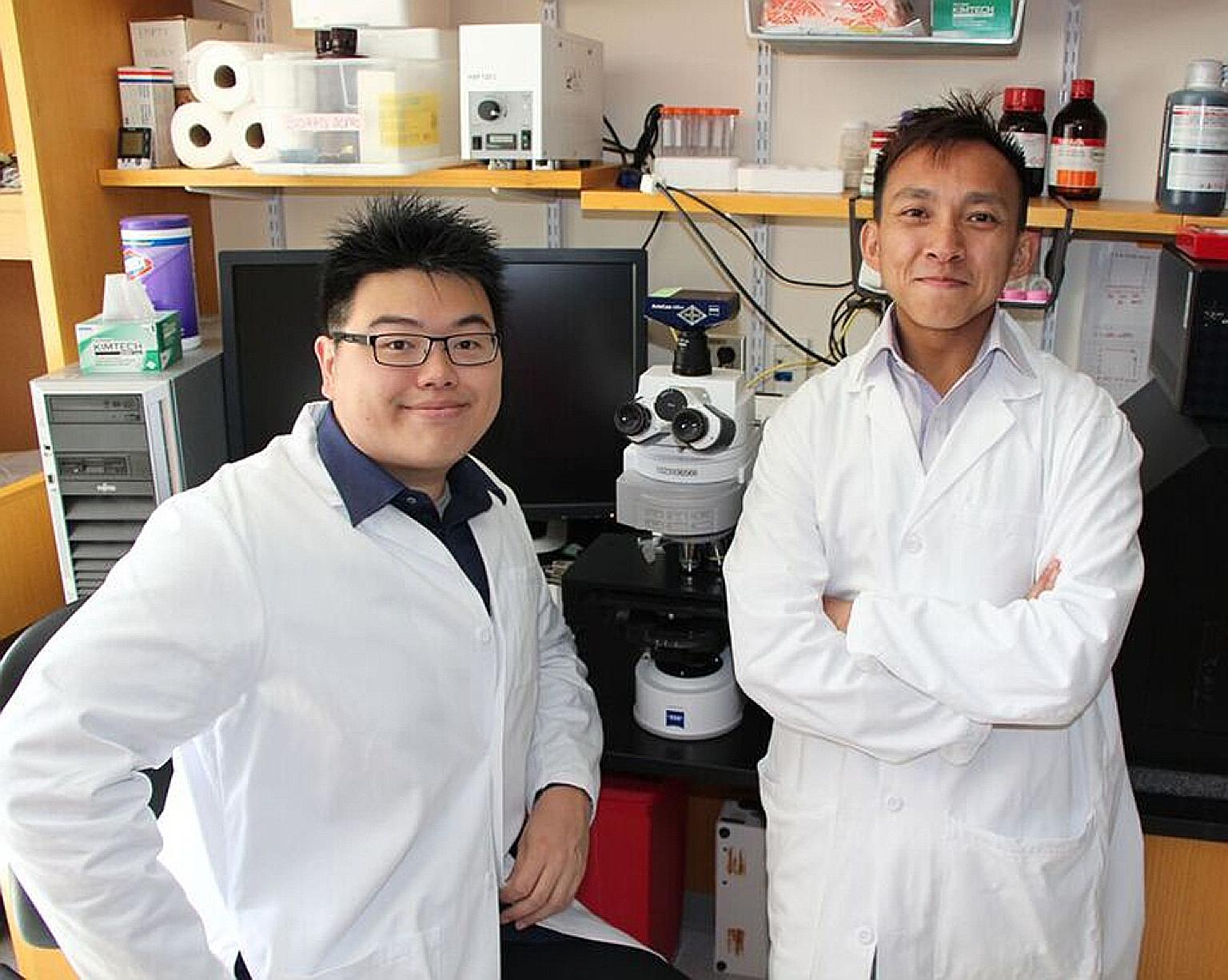New HPV vaccine may offer more protection
Sign up now: Get ST's newsletters delivered to your inbox

Dr Wang (left) and Dr Poh, co-founders of biotech start-up PathoVax, whose vaccine is expected to undergo clinical trials by 2018.
PHOTO: COURTESY OF LIM KAH SUAN
HPV vaccines approved for use in Singapore have been lauded as a game-changer in offering 70 per cent protection against cervical cancer.
But Singaporean Joshua Wang, who did his PhD at the Johns Hopkins University School of Medicine, wanted to take this further. Under the mentorship of Dr Richard Roden, Dr Wang, together with his collaborators at the Medical University of Vienna in Austria, developed a vaccine that could protect against all human papillomavirus (HPV) strains responsible for causing the disease.
Together with another Singaporean, Dr Poh Weijie, Dr Wang founded biotech start-up PathoVax, which is based in Maryland in the United States. The vaccine is expected to undergo clinical trials by 2018.
It has been shown in laboratory studies to be able to target 27 HPV strains, including HPV type 51 which, according to a 2014 local study, is the most common HPV subtype found in infected women here.
HPV is known as the main cause of cervical cancers.
Vaccines available here - Gardasil and Cervarix - offer protection against HPV types 16 and 18, which cause at least 70 per cent of cervical cancer. In 2014, the US Food and Drug Administration approved vaccine Gardasil 9, which can cover about 85 per cent of all cases of cervical cancer.
Unlike these vaccines, however, the PathoVax vaccine may also protect against HPV strains responsible for head and neck cancers, as well as other diseases, including skin and genital warts.
"Preventive vaccination is the most cost-effective method to stop HPV-related cancers as there is no proven treatment to eliminate HPV infections once acquired. Current vaccines do not target all HPV types and women still need to go for screening," said Dr Wang, 31.
In a lab study in 2014, mice were given the vaccine to induce the production of antibodies against the virus. They were then injected with the HPV virus to see if they were infected. The outcomes were promising, with vaccinated mice protected against the virus, unlike the non-vaccinated mice.
PathoVax's vaccine is a virus-like particle that makes use of both an HPV protein called HPV L1 and a conserved region in an HPV protein called HPV L2 which is found across all HPV strains. Current vaccines use virus-like particles made from just the HPV L1 protein.
"This approach produces a broad-spectrum immune response that can recognise multiple HPVs simultaneously, instead of a type-specific response," said Dr Wang.
The vaccine is being produced to a standard in which it can be used in trials, expected to start in the United States in 2018, said Dr Poh, 33. If all goes well, this could get to market in 2024.
Discussions are ongoing with local hospitals to see if clinical trials can be held here.
The Singaporean duo started off as researchers at Johns Hopkins wanting to address technological gaps in medicine.
While Dr Poh admits that vaccines are one of the hardest areas to venture into, given the long process of taking research results to the market, he feels it should not deter others from doing so.
"You need to constantly remember what drove you to start the company. For us, we wanted to advance a discovery that saves human lives."
Find out more about cancer and how to fight it on ST's Fighting Cancer microsite.


